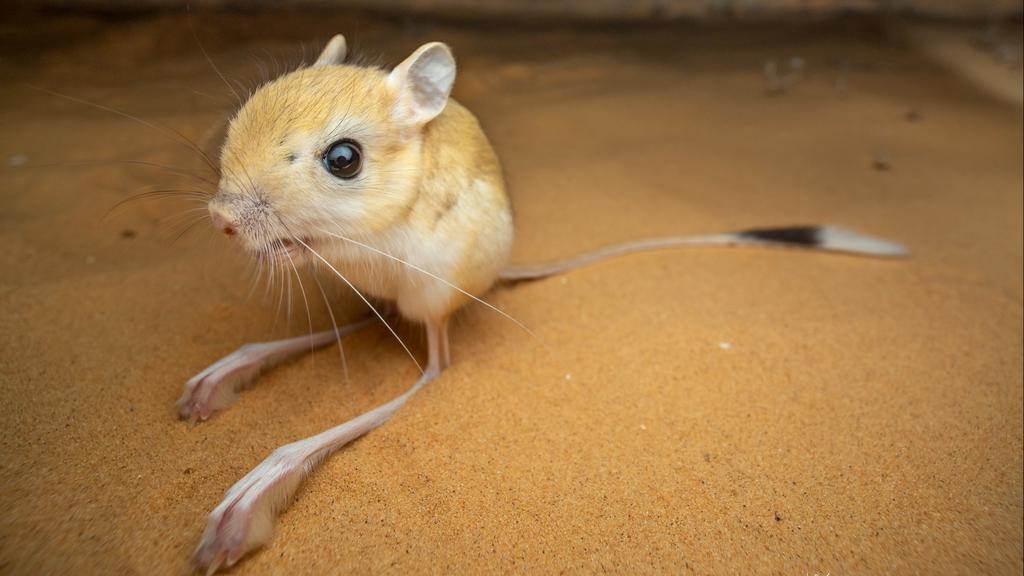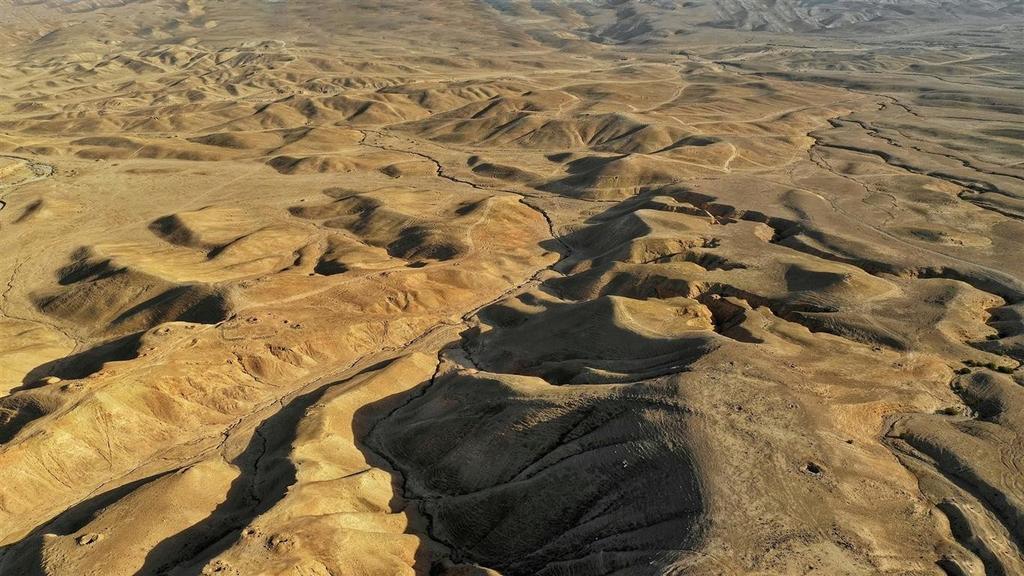The lesser jerboa, a hopping desert rodent found throughout desert areas desert in Israel, Saudi Arabia, northern Africa, and Asia, usually makes its home in the arid desert climate.
This quirky little mammal is strictly nocturnal, solitary, and is equipped with acute senses meant to aid its survival in the barren desert.
The jerboa’s eyes and ears are very large, giving it excellent vision and hearing. Its flat nose is well-adapted for locating food and his long mustache allows it to "feel" the ground in search of seeds, plants, and fungi.
The Jerboa often moves on the sand with graceful skips, on its two extremely long back legs. This distinctive feature has led some to draw parallels between the jerboa and the Australian kangaroo - which also moves about using its extremely strong hind legs.
The hairs found at the tip of the jerboa’s legs prevent it from sinking into the sand and muffle its skips in the danger-filled desert.
When faced with a threat and the need for flight arises, the jerboa is able to jump a tremendous distance (approximately 2 meters or ~6'7 feet) when compared to its size and also leap to an impressive height of almost a meter (~3'3 feet).
Its long, strong tail serves it for balancing, allowing it to quickly change directions mid-jump while it is in the air.
The jerboa’s lifespan is 6 years, and despite its sweetness - it belongs solely in nature and not among humans.
The jerboa is a protected wild animal that is in constant danger because its natural habitat is diminishing due to human intervention. Raising it in captivity without a permit is a serious offense that could result in criminal proceedings.



